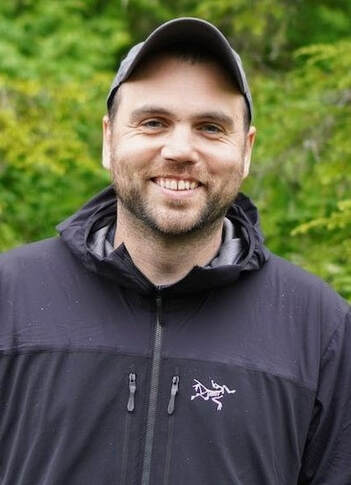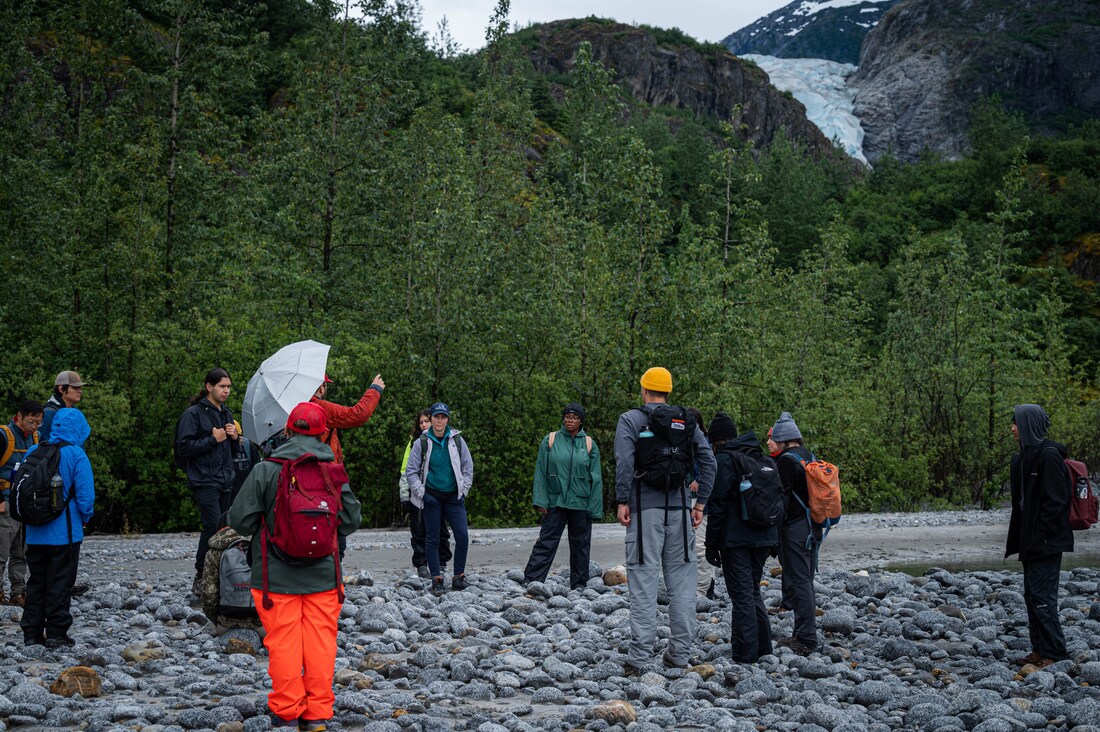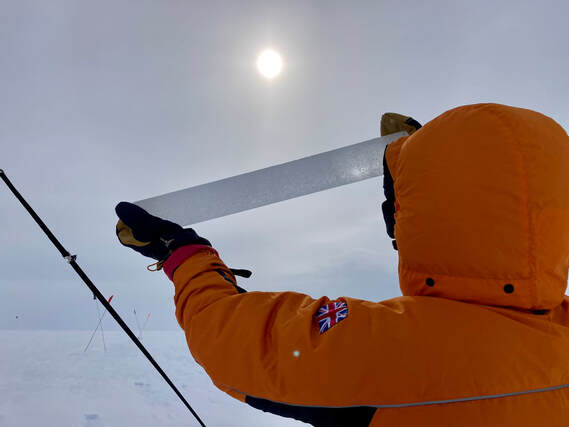WELCOMEHi, I'm Scott Braddock - I recently graduated with a PhD from the University of Maine in the School of Earth and Climate Sciences and Climate Change Institute. I study current and past changes of glaciers and ice sheets around the world using a variety of geophysical methods and tools
POLAR EXPLORATIONS is the convergence my interests: research, outreach, and teaching. My goal is to combine these interests to create opportunities for collaborations in Polar STEM fields between students and professionals. Please reach out to me for more information about getting students and teachers involved in Polar field work. In recent years, I have dedicated my energy towards science outreach and providing field-based and virtual experiences in Polar environments for high school and undergraduate students from marginalized backgrounds in Polar STEM fields. Currently, I teach field-based courses in Alaska and Maine for Upward Bound students.
|
News & Updates
May, 2024: This term at College of the Atlantic, I am teaching a field-based course on Glaciers and the Landscape. We have the opportunity to explore Mount Desert Island and Acadia National Park for evidence of past glaciations and sea level change!
April, 2024: The second chapter of my thesis was just published in Annals of Glaciology! An amazing team of coauthors compiled our knowledge and experiences from nearly a decade of shallow bedrock core drilling in Antarctica to summarize the lessons learned to help future teams increase their chances of recovering a core. Check out the paper here.
May, 2024: I completed my PhD at UMaine in May, 2024! After 5 exciting years, I defended my PhD in April and finished up my program. I will continue to teach courses at the University of Maine in the summer of 2024 and at College of the Atlantic in 2024/25. In addition, I will be continuing my research at Umaine with the Polar Geophysics research team as a Research Assistant Professor in the Climate Change Institute.
Check out The Quickening: Creation and Community at the Ends of the Earth, a new book by author, Elizabeth Rush. The book highlights a journey to Thwaites Glacier, West Antarctica when Elizabeth joined our group of scientists aboard the U.S. icebreaker, the Nathaniel B. Palmer for a 2-month science expedition in 2019. Overview here
Summer 2023 was a huge Success. Students from Maine, Alaska, Washington, Oregon, and Texas joined us in week-long Polar STEM programs in Juneau, AK. Check out more information in our trip report (coming soon).
February, 2023 - Back from the field! Although some of the science objectives weren't completed this trip, we learned many valuable lessons on trouble shooting the drill and using radar techniques. Amazing team despite some challenging conditions. Photo below is scientist Dr. Keir Nichols inspecting a section of ice core for 'dirty' ice.
Email: [email protected]
Location: Bryand Global Science Center: 300E
University of Maine
Orono, ME 04469
Location: Bryand Global Science Center: 300E
University of Maine
Orono, ME 04469








